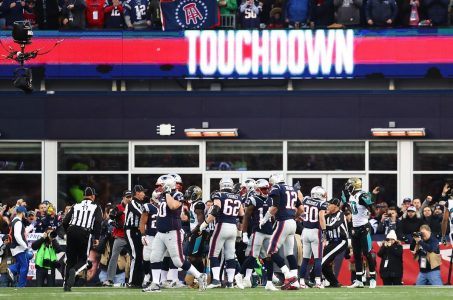Academic Study Rates Daily Fantasy Sports as Skill, Not Gambling
Posted on: May 1, 2018, 03:00h.
Last updated on: May 2, 2018, 01:13h.
Daily fantasy sports are not games of chance, says a new study by a Kansas State University professor, soon to be published in full in the Journal of Sports Science. The report advises that state legislators should not class the contests as gambling.

“Whether or not individuals in a state can participate in daily fantasy sports has a massive economic and societal impact,” states the study. “This paper determines that daily fantasy sports are not games of chance.
“The key argument probabilistically shows that “Unskilled participants never win at DFS,” it continues. “The contrapositive of this statement, which is logically equivalent, states “With extremely high probability, all DFS winners have skill.”
Losing Streak
Professor Todd Easton and co-author Sarah Newell arrived at their conclusions through good-old-fashioned trial and error, with the emphasis squarely on error. The researchers used a simulation to generate random teams “to model a completely ‘unskilled’ DFS participant” and lost every single one of the 35 contests they played across the course of the 2016 NFL season.
The most astonishing result is that not a single team won a payout,” the paper states. “It is difficult to truly comprehend the extreme rarity of losing all 35 contests. This is less likely than a single ticket winning the Powerball. It is less likely than flipping a coin and getting heads 28 times in a row. It is 300 times less likely than being struck by lightning this year.”
They then compared these results with those of picks created by an integer programming model, which creates a skilled strategy to select a team. Needless to say, the programming model outperformed the unskilled simulation each time.
The authors note that in a game of chance every strategy should perform equally well and, in particular, “a random team should perform as well as a team selected by any other strategy.”
Authors Hope Research Will Inform Lawmakers
The authors hope their work might help diffuse the “tense political climate” surrounding DFS contests, which reached its height in 2016 when the New York Attorney General Eric Schneiderman sued DraftKings and FanDuel for illegal gambling, ordering them to cease operations in the state. DFS contests were subsequently legalized by the legislature in Albany.
“Elected leaders and the judges of the country or state determine what constitutes gambling. This paper has shown that DFS contests do not meet one the necessary requirements of gambling: chance,” concluded the study.
“Thus, the authors recommend that states should no longer legally consider DFS salary cap contests as gambling and encourage the use of this research to inform the public and lawmakers of these new developments in this controversial topic.”
Related News Articles
New Jersey Goes Crazy for Sports Betting as DraftKings Processes Two Millionth Bet
Sports Bettors Likely to Spend Big this Fall, Survey Says
Most Popular
Mega Millions Reportedly Mulling Substantial Ticket Price Increase
NoMad Hotel to Check Out of Park MGM on Las Vegas Strip
Most Commented
-
End of the Line for Las Vegas Monorail
— April 5, 2024 — 90 Comments -
Mega Millions Reportedly Mulling Substantial Ticket Price Increase
— April 16, 2024 — 9 Comments -
Sinclair Broadcast Group Selling 7.91 Million Bally’s Shares
— April 12, 2024 — 5 Comments
















No comments yet